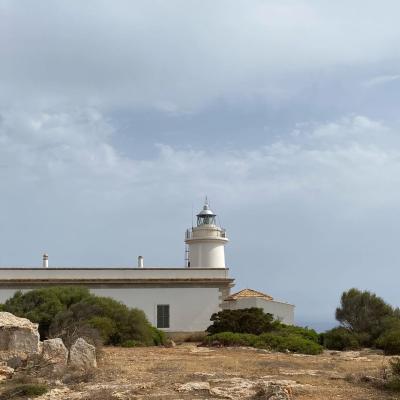Why is the isolation of Mallorca important for the evolution of its native plants?
Similar Topics
mallorca isolation
native plants evolution
island endemic species
mediterranean flora
plant adaptations
biodiversity conservation
evolutionary processes
ecological heritage
The isolation of Mallorca has played a crucial role in shaping the evolution of its native plants by promoting unique adaptations and the development of distinct species. As an island in the Mediterranean Sea, Mallorca is geographically separated from the mainland and other landmasses, creating natural barriers that limit the exchange of plant species. This isolation means that plants on the island have evolved independently over long periods, responding specifically to the island’s unique climate, soil types, and ecological conditions. Without frequent gene flow from mainland populations, native species have had the opportunity to diversify and specialize, often resulting in endemic plants found nowhere else on Earth.
Furthermore, the varied landscapes of Mallorca, from coastal regions to mountainous areas, combined with the island’s isolation, have encouraged the emergence of a wide range of microhabitats. This variation has allowed plant species to adapt to specific niches, enhancing their ability to survive in diverse environmental conditions. The genetic distinctiveness arising from isolation also helps these plants develop resilience to local pests, diseases, and climatic stresses that differ from those on the mainland. Overall, Mallorca’s separation from larger landmasses fosters a natural laboratory for evolutionary processes, making the island’s flora rich in biodiversity and scientific interest.
The importance of this isolation extends beyond evolutionary significance; it also underscores the need for conservation. Many of Mallorca’s native plants rely on their unique evolutionary adaptations to thrive in their restricted environments. The delicate balance maintained by isolation means that introducing new species or environmental disturbances could threaten these endemic plants. Preserving Mallorca’s natural isolation and its native flora is thus essential for protecting the island’s ecological heritage, contributing both to biodiversity and the broader understanding of evolutionary biology in island ecosystems.
Furthermore, the varied landscapes of Mallorca, from coastal regions to mountainous areas, combined with the island’s isolation, have encouraged the emergence of a wide range of microhabitats. This variation has allowed plant species to adapt to specific niches, enhancing their ability to survive in diverse environmental conditions. The genetic distinctiveness arising from isolation also helps these plants develop resilience to local pests, diseases, and climatic stresses that differ from those on the mainland. Overall, Mallorca’s separation from larger landmasses fosters a natural laboratory for evolutionary processes, making the island’s flora rich in biodiversity and scientific interest.
The importance of this isolation extends beyond evolutionary significance; it also underscores the need for conservation. Many of Mallorca’s native plants rely on their unique evolutionary adaptations to thrive in their restricted environments. The delicate balance maintained by isolation means that introducing new species or environmental disturbances could threaten these endemic plants. Preserving Mallorca’s natural isolation and its native flora is thus essential for protecting the island’s ecological heritage, contributing both to biodiversity and the broader understanding of evolutionary biology in island ecosystems.
🧩 Related Questions
Related Question
What types of support or initiatives exist in Mallorca to help women overcome barriers in employment?
Related Question
Are there any legal restrictions or permits required for cave exploration in Mallorca?
Related Question
What is the role of municipal police in managing parking violations in busy areas of Mallorca?
